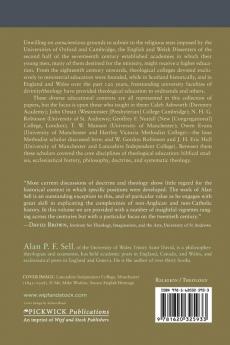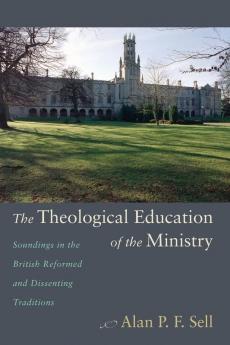English
Paperback
₹3696
(All inclusive*)
Delivery Options
Please enter pincode to check delivery time.
*COD & Shipping Charges may apply on certain items.
Review final details at checkout.
Looking to place a bulk order? SUBMIT DETAILS
About The Book
Description
Author
Unwilling on conscientious grounds to submit to the religious tests imposed by the Universities of Oxford and Cambridge the English and Welsh Dissenters of the second half of the seventeenth century established academies in which their young men many of them destined for the ministry might receive a higher education. From the eighteenth century onwards theological colleges devoted exclusively to ministerial education were founded while in Scotland historically and in England and Wales over the past 120 years freestanding university faculties of divinity/theology have provided theological education to ordinands and others. These diverse educational contexts are all represented in this collection of papers but the focus is upon those who taught in them: Caleb Ashworth (Daventry Academy); John Oman (Westminster [Presbyterian] College Cambridge); N. H. G. Robinson (University of St. Andrews); Geoffrey F. Nuttall (New [Congregational] College London); T. W. Manson (University of Manchester); Owen Evans (University of Manchester and Hartley Victoria Methodist College)--the lone Methodist scholar discussed here; and W. Gordon Robinson and J. H. Eric Hull (University of Manchester and Lancashire Independent College). Between them these scholars covered the core disciplines of theological education: biblical studies ecclesiastical history philosophy doctrine and systematic theology. Most current discussions of doctrine and theology show little regard for the historical context in which specific positions were developed. The work of Alan Sell is an outstanding exception to this and of particular value as he engages with great skill in explicating the complexities of non-Anglican and non-Catholic history. In this volume we are provided with a number of insightful vignettes ranging across the centuries but with a particular focus on the twentieth century. --David Brown Institute for Theology Imagination and the Arts
Delivery Options
Please enter pincode to check delivery time.
*COD & Shipping Charges may apply on certain items.
Review final details at checkout.
Details
ISBN 13
9781620325933
Publication Date
-10-05-2013
Pages
-328
Weight
-446 grams
Dimensions
-152x229x17.4 mm











